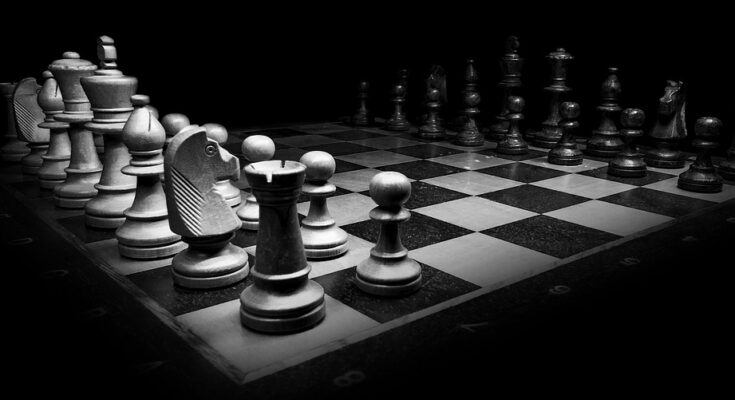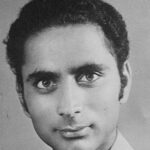You can do what you decide to do — but you cannot decide what you will decide to do.
― Free Will
The concept of free will, or the idea that individuals possess the ability to make autonomous decisions, is a topic that has been debated by philosophers and psychologists for centuries. The question of whether free will truly exist, or if our actions are predetermined by factors such as:
- Genetic Factors,
- Environment Factors, and
- Random Chance,
These factors continue to be a source of fascination and inquiry. In this blog post, let’s explore the perspectives of 6 influential books that dive into the intricacies of this complex topic, examining the various philosophical and psychological arguments for and against the existence of the free will.
From discussions of determinism to examinations of the role of consciousness and the brain, these books offer a diverse array of perspectives on one of humanity’s most fundamental questions.
6 Best Books Debating the Existence of Free Will:―
1. Free Will by Sam Harris
How can we be “free” as conscious agents if everything that we consciously intend is caused by events in our brain that we do not intend and of which we are entirely unaware?
― Free Will
In his book Free Will, renowned author Sam Harris delves into the concept of determinism and the illusion of free will. He puts forth an array of scientific evidence from neuroscience and psychology to make the case that our thoughts and actions are ultimately predetermined by factors beyond our control.
This intellectually stimulating book challenges readers to reconsider their beliefs on personal accountability, morality, law, and politics and encourages the exploration of a fresh perspective on the nature of human action.
Despite its compact size of 96 pages, the book offers a comprehensive and in-depth exploration of the subject.
Grab Your Copy Here ― Amazon In | Amazon US
2. Fooled by Randomness: The Hidden Role of Chance in Life and in the Markets
No matter how sophisticated our choices, or how good we are at dominating the odds, randomness will have the last word.
― Fooled by Randomness
Fooled by Randomness written by Nassim Nicholas Taleb reflects on the role of chance in life and the markets. It highlights the impact of randomness on human decision-making and how it can lead to unexpected and sometimes disastrous outcomes.
Taleb argues that many of the events in life and in the markets are not caused by our actions, but by randomness and chance.
One of the key takeaways from the book is the importance of understanding the role of randomness in our lives and learning to embrace it. Taleb writes, “The best decision-making takes into account a healthy respect for randomness and the unknown.”
It’s a good read for anyone interested in understanding the impact of chance and unpredictability on our lives and the world.
Grab Your Copy Here ― Amazon In | Amazon US
3. The Courage to Be Disliked by Ichiro Kishimi and Fumitake Koga
You are not limited by your past experiences, doubts, or the expectations of others. You are free to create your own life.
The Courage to Be Disliked by Ichiro Kishimi and Fumitake Koga is a book based on the psychological theories of psychologist Alfred Adler. The book is in form of a conversation between a philosopher and a young man, in which the philosopher explains Adler’s theory of “Individual Psychology” and how it can be used to free ourselves from past experiences, doubts, and the expectations of others.
Adler’s concept of “Individual Psychology” is based on the idea that an individual human being is the best determinant of his or her own needs, desires, interests, and growth. and that they are not in any way restricted by their past experiences or the expectations of others.
In the words of Kishimi and Koga,
“It is not our environment that determines our lives. It is the way we perceive our environment.”
It’s up to you to read or not read the book but you must explore Alfred Adler’s theory of Individual Psychology even if you are remotely into Psychology.
Grab Your Copy Here ― Amazon In | Amazon US
4. Being and Nothingness by Jean-Paul Satre
It is therefore senseless to think of complaining since nothing foreign has decided what we feel, what we live, or what we are.
― Being and Nothingness
“Being and Nothingness” is a book written by Jean-Paul Sartre, a prominent French philosopher, and existentialist of the twentieth century. The book explores the concepts of freedom, choice, and human consciousness.
Sartre argues that human consciousness is constantly projecting itself into the outside world and infusing it with meaning. He states, “Man is the being whose project is to be God.” He advocates that we alone create our values and that our existence is characterized by freedom and the inescapability of choice. One of Satre’s ideas that highly resonated with me was:
“Man is condemned to be free.”
These 5 words hold more insight and understanding about human existence than I have discovered from reading multiple books combined.
The book is rich with many other such quotes that can persuade readers to think differently and question their own existence.
Grab Your Copy Here ― Amazon In | Amazon US
5. Existentialism Is a Humanism by Jean-Paul Satre
In life, man commits himself and draws his own portrait, outside of which there is nothing.
― Existentialism is a Humanism
“Existentialism is a Humanism” by Jean-Paul Sartre, one of the most prominent European intellectuals of the post-World War II decades asserts that existentialism is essentially a doctrine for philosophers.
The idea of freedom occupies the center of Sartre’s doctrine.
He states, Man, born into an empty, godless universe, is nothing, to begin with. He creates his essence—his self, his being—through the choices he freely makes (“existence precedes essence”).
Sartre claims that were it not for the contingency of his death, he would never end. Choosing to be this or that is to affirm the value of what we choose. In choosing, therefore, we commit not only ourselves but all of mankind.
The book is a new English translation of Sartre’s 1945 lecture and his analysis of Camus’s The Stranger, about which he said, “The Stranger is a man who has lost his way.”
Grab Your Copy Here ― Amazon In | Amazon US
6. Freedom Evolves by
We live in a world that is subjectively open. And we are designed by evolution to be “informavores”, epistemically hungry seekers of information, in an endless quest to improve our purchase on the world, the better to make decisions about our subjectively open future.
― Freedom Evolves
In the book Freedom Evolves, Daniel Dennett offers a different perspective on the topic of free will by taking a naturalistic approach. He argues that free will is not a binary concept, but rather something that evolves over time.
As Dennett writes,
“Freedom is not an all-or-nothing matter; it comes in degrees.”
Dennett also challenges the traditional notion that free will is incompatible with determinism, proposing the concept of “Compatibilism” instead. He explains that determinism does not mean that our choices are predetermined, but rather that the laws of nature dictate what is possible for us to choose from.
Dennett writes, “Freedom and determinism are compatible, and we should be glad of it.”
The book not only provides an intellectually stimulating read but is also written in an accessible and engaging style.
Grab Your Copy Here ― Amazon In | Amazon US
Additionally, I recommend checking out our other blog posts on various topics such as best books for starting a reading habit, books about the stock market and investing, and books that Chris McCandless carried with him into the wild.
The Best Books: Recommended Reading Lists
1. Best Books That Teach the Art of Living a HAPPIER LIFE
2. Best Books on STOCK MARKET & INVESTING
3. Best Books To Help You Find HOPE During Your Darkest of Times
4. Best Books on Learning & Mastering SONGWRITING
5. Must-Read Books on Punjab’s History and Culture
6. Best Books That Talk about Sologamy
8. Alan Watts’ Books That Talk About Human Existence
9. From Ph.D. To Industry: 4 Best Books To Aid Your Transition
10. Inspiring Ambitions: Autobiographies of Cricketers Who Made It Big
11. Books To Understand Blockchain Technology
That’s all we have for today.
Thanks a lot for tuning in to HappinessDhaba. Do let me know your views on this in the comment section.
Signing off with my favorite words
Zindagi Zindabad!
Author Profile

Recent Posts
 The Punjabi LiteratureJuly 14, 2025Paash on the Death of Dreams ― Sab Ton Khatarnak
The Punjabi LiteratureJuly 14, 2025Paash on the Death of Dreams ― Sab Ton Khatarnak Blog PostsApril 6, 2025Rebuilding Identity After The Self Falls Apart | by Jasmeet
Blog PostsApril 6, 2025Rebuilding Identity After The Self Falls Apart | by Jasmeet Book Summaries & LessonsFebruary 6, 2025BURN IT ALL: Kafka’s Legacy and the Friendship That Saved It
Book Summaries & LessonsFebruary 6, 2025BURN IT ALL: Kafka’s Legacy and the Friendship That Saved It Life Through SongsJanuary 20, 20259 Best Punjabi Heer Ranjha Songs ― The Modern Playlist
Life Through SongsJanuary 20, 20259 Best Punjabi Heer Ranjha Songs ― The Modern Playlist














2 Comments on “6 Best Books Debating the Existence of Free Will”